Advice From: Carolyn Rivkees of Chronically Cheerful
posted on February 12, 2021 | by Megan Lierley
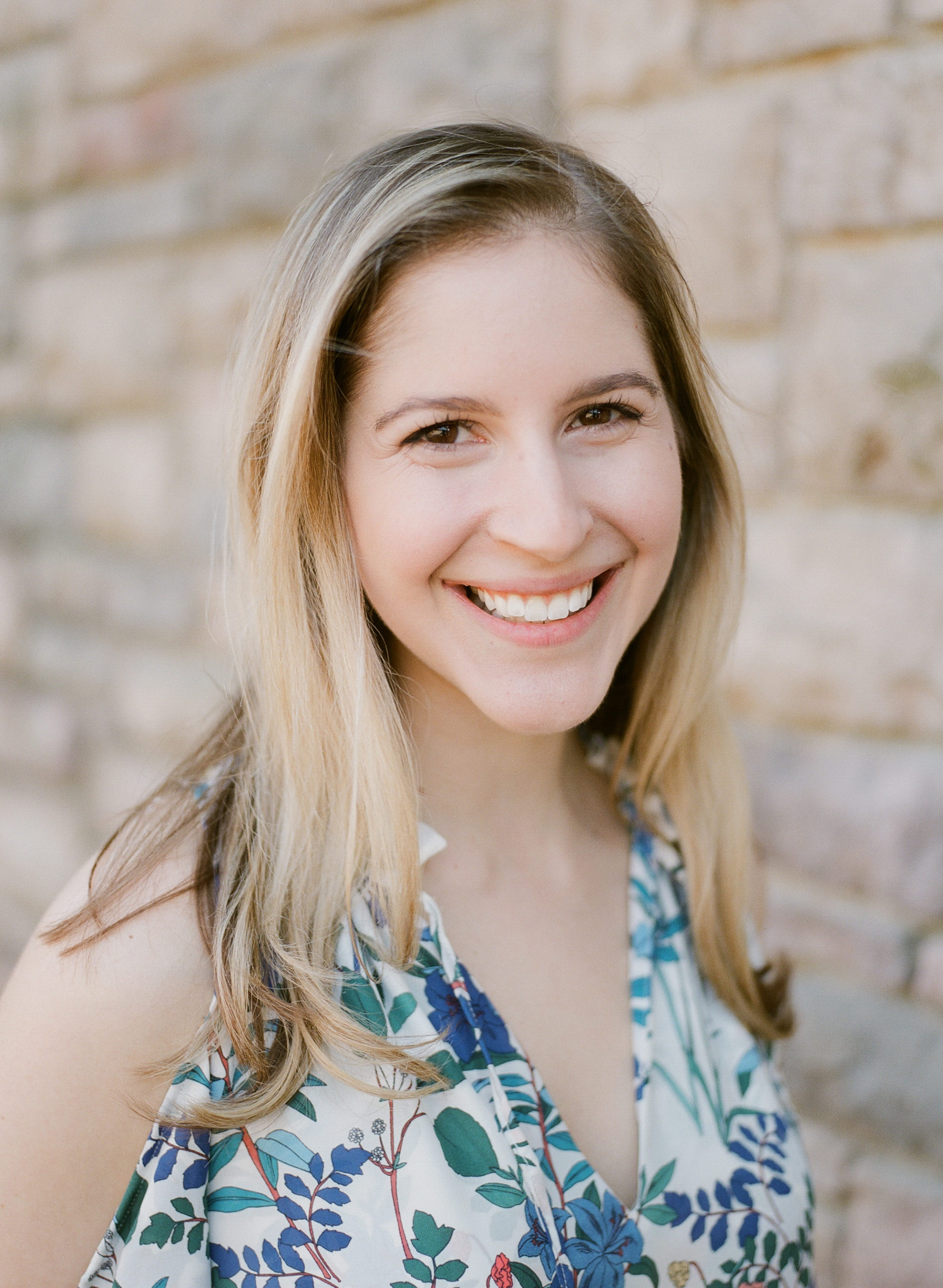
Welcome to “Advice From,” a new column I’ve been dreaming up for months now and an opportunity to introduce our community to some truly inspiring women. Every interview (including those featured on Advice From a 30 Something!) is featured in my weekly newsletter, along with recommendations for great things to read and lots of fun extras—kind of my roundup of the “best of” the internet each week :). Subscribe here so you don’t miss any inspo! xx, Megan Lierley, Managing Editor, Advice From a 20 Something
Carolyn Rivkees is a writer, wellness blogger, and chronic illness advocate based in Washington, DC.
In your newsletter, you describe yourself as a “professional patient” as you’ve spent years working to manage chronic pain. Can you tell us a bit about this journey?
Even though I’ve spent the last 3+ years focused on healing, I look perfectly healthy on the outside. That’s the catch with invisible illness! You can never tell the struggle someone is experiencing on the inside. It’s a lesson I’ll carry with me for the rest of my life.
Growing up, I was incredibly lucky not to have health concerns. When your body functions properly, you don’t have to spend time thinking about it! That changed during my senior year of high school. I developed migraine, which is incredibly common for women. Did you know 18% of American women have migraine?
Luckily, I was able to manage the condition with the help of medication and lifestyle practices, like keeping a regular sleep schedule and eliminating foods like alcohol (I know…even in college!). However, a few years post-grad, the frequency and severity of my migraine episodes began to dramatically increase—it seemed like anything and everything would trigger my headaches and send me running to a dark room.
When my pain shifted from weekly episodes to daily debilitation, I quit my job to focus full time on healing. Since then, I’ve spent the past 3+ years exploring treatments and techniques across Western and Eastern medicine to better manage, learn about and treat my chronic pain. I’ve tried everything from acupuncture to hypnosis; CBT therapy to biofeedback; supplements to specialized diets all in search of relief and recovery.
At first, I was simply focused on improving physical symptoms. But a huge amount of my efforts and energy have also focused on cultivating mindfulness and caring for mental health, which I wouldn’t have predicted.
What communities or resources have you found helpful in finding support or information related to living with chronic pain?
My teen years and early twenties were spent surrounded by other like-minded, go-getter types. It felt like we were all on a similar, conventional path. But after my diagnosis, I felt as though I’d taken a sharp and unexpected detour, leaving me totally lost and alone.
I found my people on Instagram.
There’s a lot of potential negative impacts from social media (doomscrolling, negative self-esteem), but I don’t think the power of online communities—especially in this COVID era—is championed enough. In a time where loneliness is a pandemic in and of itself, social media can offer such an incredible source of support and information, if you look in the right places.
In groups like @thespooniesisterhood, @chroniconofficial, and @beyondmybattle, people come together to provide support for those struggling with wellness challenges; share tips on pain and energy management; and offer advice on coping and dealing with healing setbacks. Being a part of communities that simply “get it” has been a game-changer. I feel so lucky to be part of a beautiful community of individuals sharing their honest experiences and helpful advice.
You’ve created an incredible resource with @chronically_cheerful, your highly engaged (and bright and cheerful!) Instagram page. What’s been your biggest surprise in growing and engaging with this community?
Thank you so much! Building @chronically_cheerful gave me a sense of purpose, helping transform my pain into something useful.
I’ve been surprised by how much people crave permission to slow down and rest, whether they’re chronically ill, or not. It’s clear that society’s glorification of hustle culture takes a physical, mental, and emotional toll on all of us. My followers always love engaging with content that encourages them to detach their worth from their productivity—a lesson I’ve had to learn during the course of my own healing journey.
2020 was obviously a really tough year for most of us and the start to 2021 hasn’t been smooth sailing! Do you have any quick tips for shifting one’s mindset in moments/days that feel particularly difficult?
Changing your mindset can be tough when you’re caught in a spiral of anxiety, fear, or pain. A quick tip? There’s no better way to counter uncertainty and self-doubt than by listing all the times you’ve overcome previous hardship and challenges. Your past successes are actual evidential proof you can make it through whatever circumstance you’re facing: you’ve done it before, and you can do it again. Look at that list and feel that self-empowerment.
Another favorite trick of mine is breaking down something that feels challenging into much smaller chunks. Sometimes, when I wonder how to make it through yet another day of pain, I tell myself to forget about the day and simply take things hour by hour, minute by minute, moment by moment. You can get through anything for a moment.
What’s the best advice you’ve ever received (and if that’s too difficult, the best advice you’ve received lately)?
That the way you think can help determine how you feel. At first, I was a huge skeptic in practices like affirmations and visualization. I thought it was hokey! And honestly just another capitalistic play by the wellness industry to sell more stuff.
But the more I learned about neuroplasticity and the mind-body connection, the more I believed that I could positively enhance my healing with my own thinking. Let me be clear: I don’t believe you can only think your way to health. But I do believe that how we think can shape the way we feel by impacting our actual physiology, like helping to release more feel-good chemicals in our bodies (like serotonin and dopamine) and switching our thoughts from unhelpful automatic ones to more positive, affirming ones.
Thoughts are powerful, and we can use them to our advantage.
What’s your favorite book of all time and why?
Pride and Prejudice, by Jane Austen. I learn something new about human nature every time I read it. Despite the 19th century setting, her realism, humor, and commentary on society are timeless.
Best recipe you’ve tried recently?
Digesting raw vegetables can be really hard for a lot of us living with chronic illness or autoimmune challenges. I recently tried Kitchari, which is an ayurvedic porridge and thought it was the perfect way to sneak in my veggies.
My newsletter has an “ETC” section, where I share anything I’ve loved recently that isn’t reading-related. What product, podcast, article of clothing, Airbnb listing, or new restaurant is your go-to “omg, you have to try….” right now?
I’m obsessed with this sleep pod. It’s actually from Shark Tank. Weighted blankets always feel too heavy for me, and this gives you that same cozy feeling without so much claustrophobia. I’ve been napping with it, and my anxiety honestly melts away when I use it.
If you were writing a book about your life, what might your 2020 chapter be called?
Breathing Deep into Uncertainty
What are you feeling hopeful for in 2021?
I think we can all agree that we were exhausted by 2020. I’m feeling hopeful about this new administration and the distribution of COVID vaccines. On a more personal level, I’m hopeful about helping to continue to destigmatize invisible illness—including mental illness. When we come together to share our experiences, we normalize the whole spectrum of being human and actually help each other to heal.
Thank you so much, Carolyn!
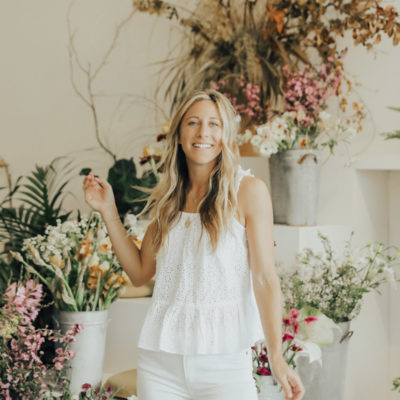 Using Trunk Club to Update My Spring/Summer Wardrobe
Using Trunk Club to Update My Spring/Summer Wardrobe 5 Tips For Styling a Simple Summer Dress
5 Tips For Styling a Simple Summer Dress 5 Ways to Style a Bandana
5 Ways to Style a Bandana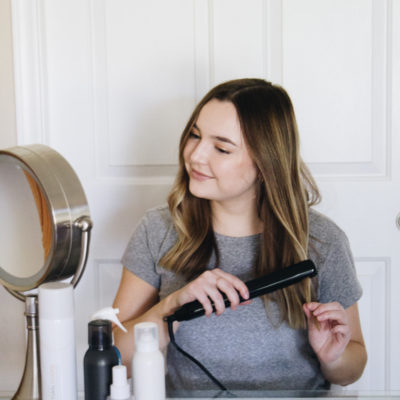 3 Different Ways to Curl Your Hair
3 Different Ways to Curl Your Hair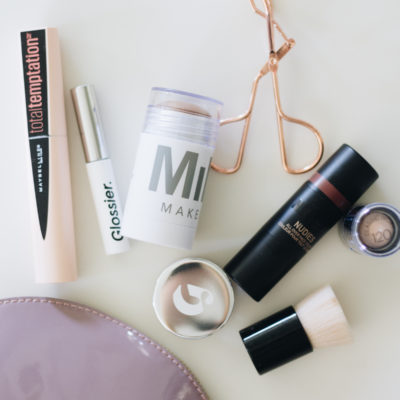 How to Master the 5-Minute Makeup Routine
How to Master the 5-Minute Makeup Routine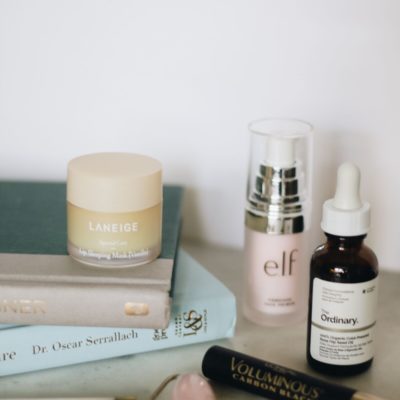 Amazon Beauty Buys Under $25
Amazon Beauty Buys Under $25 3 Ways to Make Your next Trip More Memorable
3 Ways to Make Your next Trip More Memorable Tips for Digital Spring Cleaning and Organizing
Tips for Digital Spring Cleaning and Organizing Color Trend: Marigold
Color Trend: Marigold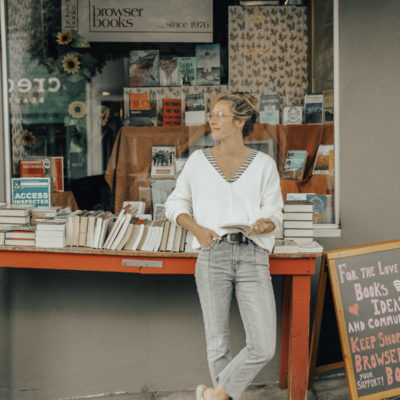 Mental Health Update: The 3 Major Changes I Made to Get Out of Depression
Mental Health Update: The 3 Major Changes I Made to Get Out of Depression 5 Unexpected Ways to Unwind After Work
5 Unexpected Ways to Unwind After Work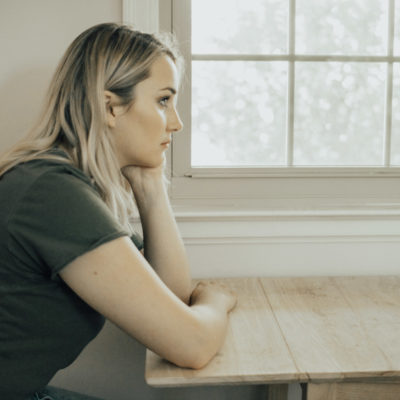 How to Know You’re in a Controlling Relationship
How to Know You’re in a Controlling Relationship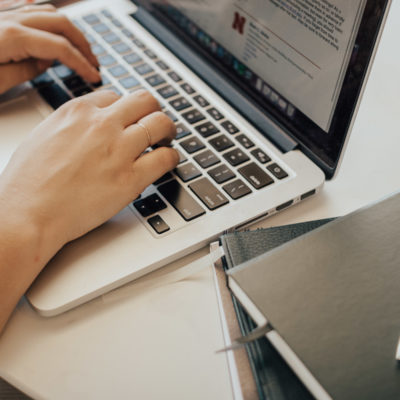 4 Questions I get Asked as a Professional Resume Writer
4 Questions I get Asked as a Professional Resume Writer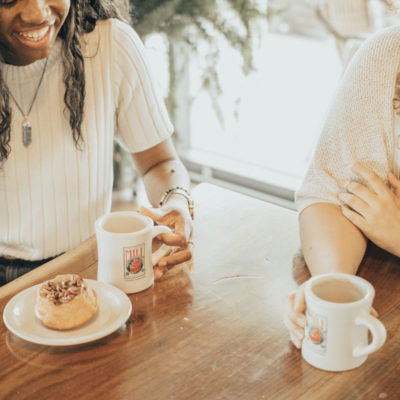 How to Make Friends at Work
How to Make Friends at Work Getting Out of the ‘Busy’ Mindset
Getting Out of the ‘Busy’ Mindset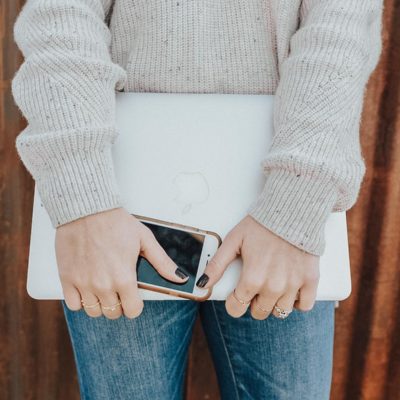 Ask Amanda: How do I pursue the career I want without formal training?
Ask Amanda: How do I pursue the career I want without formal training? Ask Amanda: How Do I Find a Therapist?
Ask Amanda: How Do I Find a Therapist?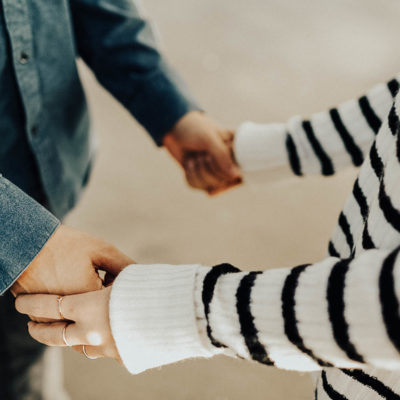 Ask Amanda: How do I stop being jealous in my relationship?
Ask Amanda: How do I stop being jealous in my relationship?



Christine Laraine Says
This is such a sweet article. I love how we can really check in with how social media has a good and a bad side. I started my own journey through sharing my life on IG, and while it allowed me to connect with so many people around the world, it also lead to a toxic obsession with comparison. I almost deleted everything even though I had thousands of followers. It took time, but with some help, I was able to address some underlying situations that caused me to have to many negative self-beliefs. I love this blog and all the honesty/tips! My IG is @christinelarainee if you ever are interested to connect!
FoodDoz Says
It is a good post. http://www.fooddoz.com
FoodDoz Says
It is a good post. Thanks. Best regards! http://www.fooddoz.com
Mindy Torres Says
As a student, I find this article deeply inspiring and informative. Carolyn Rivkees’ journey with chronic illness highlights the often unseen struggles many people face. Her resilience and proactive approach to managing her condition through both Western and Eastern medical practices is truly admirable.
Dumb And Dumber Suits Says
Thanks for the info! Also, don’t miss out on the Dumb and Dumber Suits—they’re stylish and a great way to make a standout fashion statement.